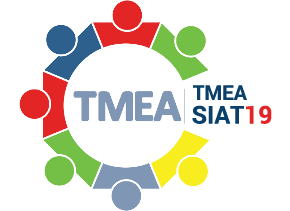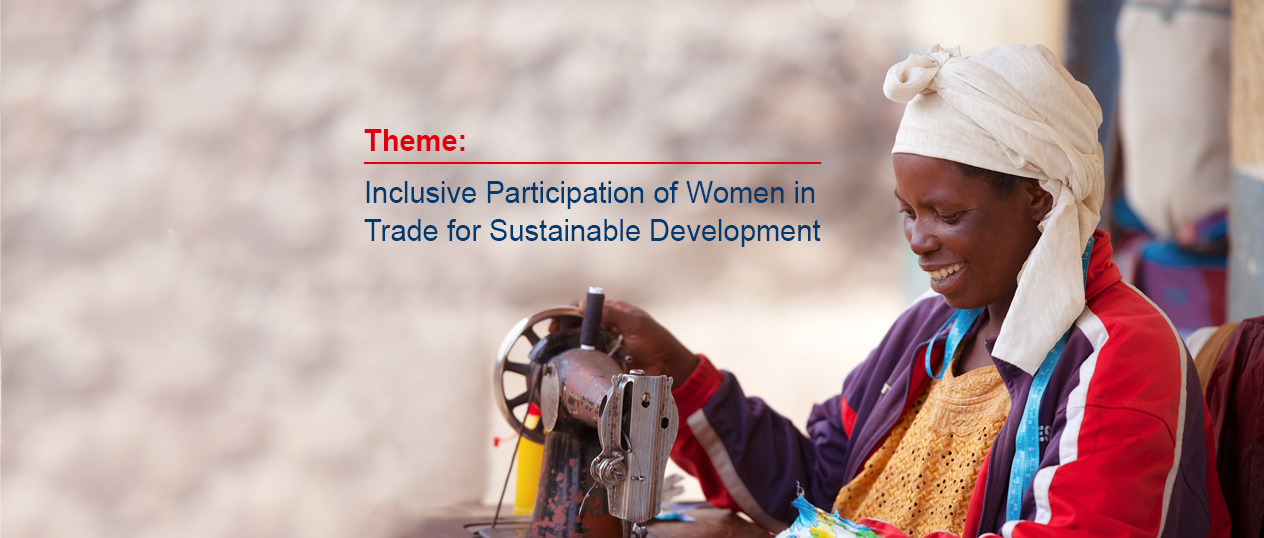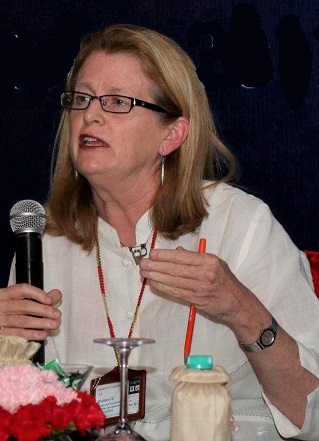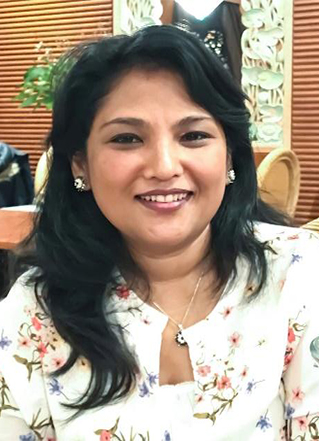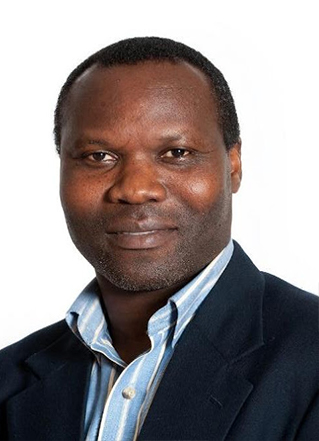- ATTENDEES REGISTRATION
- Blogs
- CALL FOR PAPERS
- Closed SIAT Attendees Registration
- Contact Us
- FAQs
- Gallery
- grid test
- Home
- Home
- Home
- Home
- Home
- Home
- Home Page Two
- Hotels
- Logistics
- Presenters Profiles
- Privacy Policy
- Research Archive
- Sample Page
- SIAT Attendees Registration Form
- SIAT EVENT PAPER SUBMISSIONS ( Gravity Form 1 )
- SIAT EVENT PAPER SUBMISSIONS ( Gravity Form 3 )
- SIAT Paper Submission
- Speakers with Bios
- Team Presenting
- Test Tab
- teste
- Travel Information
- Where To Stay
Samir Bhattacharya
Graduated from University of Auvergne 1, France on Environment Economics, Samir Bhattacharya is presently doing his postgraduate academic research at Jawaharlal Nehru University, India on “South-South Cooperation for improved global climate governance”. For last three years, he has been associated with CUTS International, an international policy research think tank, as Regional Coordinator for Africa operations. He has authored several papers on diverse subjects including on: Role of Biodiversity Preservation in Economic Development of India, connection between trade and gender for Southern and Eastern Africa, Developing countries stand on Blue Economy related issues at WTO, Leveraging India-Bangladesh relationship for enhanced coastal zone management, different Environmental Standards of India etc. His areas of interest include the new world order for climate governance, technology and innovation for natural resource management, gender dimensions of trade etc.
Session:
- Regional and Continental Economic Integration – Catalysing gender equality and sustainable trade
Paper: Can Regional Economic Cooperation become a springboard for women empowerment? A comparative analysis between East Africa and South Asia
The paper explores the status of gender mainstreaming in trade policies of two regional blocks namely Eastern Africa (COMESA and EAC) and South Asia (BBIN countries). Issues raised include societal gender inequalities in terms of access to and control of economic and social resources, decision-making ability and different roles that men and women play within societies. Both COMESA and EAC treaties have attempted to define gender mandates and objectives regarding women. In fact, a handbook by the EAC on gender mainstreaming was formulated after a participatory gender audit checking implementation in legal and policy frameworks and decision making in institutions. Private sector’s East African Business Council 2015-2018 Strategic Plan includes women-owned enterprises in the economic empowerment context. Further, the East African Legislative Assembly (EALA) passed the EAC Gender Equality and Development Bill, 2016 advocating for gender equity and equality in matters of development. Simplified trade regimes have been commended under the two trading blocs in Africa. Countries within this bloc are hailed for integrating gender-sensitive policies in national laws although the impact is yet to be highly felt. In the South Asia region (BBIN), several initiatives seem to have been taken by the national governments of BBIN countries to promote women participation in the formal trade sector, but still informal trade continues to flourish, particularly in the border areas owing to low risk, mobility constraints and no taxation. Gender stereotyping is very high in this region. The paper concludes by reminding policymakers of the need to entrench gender issues in regional or international trade treaties.
Download the presentation using the links below
pdf or powerpoint
Mbipan Gilbert
Gilbert is the Sub Director in-charge of Supplies, Distribution and Consumption in the Ministry of Trade Cameroon. He handles AGOA issues and trade defense mechanisms. Within the scope of supply potentials of companies and their distribution capacities, he prepares companies to face challenges of trade liberalization, which includes taking advantage of free trade agreements such as the Economic Partnership Agreement and the AfCFTA. As part of his role, he has been in-charge of the development of e-commerce in the Ministry of Trade since 2015. Gilbert worked in the elaboration of the National Strategy on the Development of e-commerce. Before joining the Ministry of Trade, he had worked for the National School of ICT, Post and Telecommunications, where he developed his skills and interest in ICT through experience and training. Being a trade and gender advocate, he believes that empowering women requires addressing structural issues such as unfair social norms and attitudes, but this also includes innovation, investment in ICT infrastructure and training.
Born in Yaounde Cameroon, Gilbert has lived in Australia where he obtained a Masters of Public Policy in Economic policy with a specialization in Trade Policy at the Australian National University. Prior to that, he has a Graduate Diploma in Public Administration from the Australian National University. Gilbert is also a holder of a Professional Certificate in International Trade from the University of Adelaide, Australia. He was a prominent student leader in the Australian academic milieu, where he obtained awards and recognitions.
With a Graduate Diploma in Civil Administration from the National School of Administration and Magistracy, Gilbert has held different positions notably in research and trade policymaking and evaluation for the Ministry of Trade since 2007. Having been a speaker in several forums and conferences in Cameroon and abroad, Gilbert is a prolific writer of books on social sciences, novels, poems, articles, essays and position papers.
Session:
ICT – an enabler for Inclusive Trade?
Paper: Challenges of Women in ICT for Trade: The Case of Female Startups in Cameroon
The paper addresses the question as to why despite many ICT innovations, women are still lagging in e-commerce business start-ups. The paper acknowledges the difficulties faced by women in gaining equal platform participation in the digitisation of trade. Examples cited include lower education rates among women, being a consumer of online digital products but engaging in small scale trade that hardly goes online, societal prejudice against female-owned enterprises, and even lack in institutional support from the government in terms of policy and finance to boost women. The paper argues that it is glaring that problems raised in the existing literature are similar if not the same to the ones documented in this study. The women in Cameroon suffer the same prejudices in the world of trade and more so when accompanied by a technology feel. Therefore, the study implies that it is paramount that governments highlight the plight of women and prioritize projects, training and even creation coming up with gender-friendly policies for women engaged in trade.
Download the presentation using the links below
Kwami Ossaziffo
Born on December 15, 1984, in Togo, I have a doctorate in International Economics in 2015. I am also a graduate in Trade Policy Analysis at the Trade Policy Training Center in Africa (TRAPCA). I am currently a research professor at the University of Kara, Togo. I teach courses in International Trade, Trade Policy Practice, Trade Negotiations and Applied Econometrics. My research covers the liberalization of trade in services, the effects of regional trade agreements, non-tariff barriers, and macroeconomics policies and so on. I am also researching impact evaluation of trade policies implemented in developing countries. In addition to my job as a researcher, I am also a consultant and I have a good experience. From 2011 to 2015, I was Program Officer at the Ministry of Social Action where I coordinated programs and projects aimed at empowering vulnerable people in Togo.
Session:
Lessons experiences from West Africa and South Asia
Paper: Regional Integration and Export Supply Constraints: Evidence from ECOWAS Zone
The paper reexamines the export constraints in the ECOWAS zone. Specifically, the study (i) determines the supply capacity effect on the intra-regional exports of ECOWAS, and (ii) the foreign market access effect on ECOWAS intra-regional exports. The results show that the number of products positively affects intra- and extra-regional exports. Moreover, the estimates show tariffs are not a constraint on ECOWAS countries’ export supply. The study, therefore, concludes that the low export diversification of ECOWAS economies remains the major constraint on their capacity to supply the intra-regional market and the market of their main trading partners. As policy implication, ECOWAS countries must continue to promote export diversification strategies. To achieve this, there is a need for coherence of export promotion policies with trade policies. On the other hand, one of the challenges of these diversification policies remains the capacity of ECOWAS countries to integrate the requirements of non-tariff measures in order to respond, to a lesser extent, to international demand. For women participation in intra-trade, the study recommends the full implementation of ECOWAS Gender and Trade Action Plan 2015-2020.
Down load the presentation using the links below
pdf or powerpoint
Beatrice N. Kinyanjui
Beatrice is a strategic business and team leader with extensive technical expertise and management experience building trusted partnerships to deliver sustainable impact in international development. As Regional Manager for Cardno Emerging Markets Ltd. East Africa, Beatrice leads a diverse team of in house and associate development professionals who deliver complex projects for local and international clients across a range of sectors.
Beatrice draws on over 18 years of experience in business development, project management and private sector development having worked in leadership, senior management and advisory positions for a number of Cardno’s business units, multimillion-dollar programs and previous work in international organizations. She has an in depth understanding of private sector development with a focus on microenterprise development using a commercial and practical approach that seeks to integrate the very poor (including youth and women) into viable business sectors. Beatrice holds an MBA in International Management from Thunderbird, the School of Global Management, USA
Session:
Access to Global Markets – Obstacles & Opportunities
Paper: Inclusion and Exclusion in Global Markets of the Oil and Gas sector
The study investigates the underlying gendered access to information, assets, social and environmental capital in the oil and gas sector in Kenya. Focusing on five counties (Turkana, Kisumu, Lamu, Isiolo and Nairobi) in Kenya, the study identifies potential gender-specific impacts of and opportunities in the oil and gas industry, including gender-specific risks and benefits of the petroleum sector. The study raises several issues including the role of culture and education in shaping gender-specific interactions in communities and how they relate to trade in the gas and oil sector. The study findings suggest that pressure on natural resources increased labour and economic burdens on young women. The paper proposes that policies should be sector and gender-specific for more inclusivity and participation of women. Coupled with education and periodic sensitization, the Kenyan oil and gas sector guarantees sizeable returns to women traders if well handled. Broadly, reduction of gender asset gap, vulnerability and information gaps are important areas for policy interventions that stakeholders should focus on.
Download the presentation using the links below
pdf or powerpoint
Nancy Namisi Siboe
Nancy Namisi Siboe is an Author, Researcher and Doctoral Candidate at the University Of Portsmouth (United Kingdom). She is an Advocate of the High Court of Kenya and a member of the International Bar Association. She holds an LL.M (International Law) from the University of the West of England, Bristol (UK), an MBA (Strategic Management) from Daystar University (Kenya), a Postgrad Diploma from the Kenya School of Law and an LL.B from Moi University (Kenya). She holds certification in Public-Private Partnerships from the IP3 Institute in Arlington Virginia, USA.
She has previously worked as an Associate at the firm of Miller & Company and subsequently as the Head of the Legal Department at Tourism Fund, a state corporation in Kenya. She has featured severally as a panelist in her areas of research. Her research interests include Public International Law, International Trade & Investment Law, European Union Law, International Employment Law, International Human Rights Law and the Use of Artificial Intelligence in the Legal System.
Session:
Addressing the legal, policy and social-cultural barriers to women in trade
Paper: Legal Framework for Inclusion of Women in Trade: Case of the United Kingdom vis a vis Kenya
The paper discusses the legal and institutional framework of the rights of women in trade, reasons for the shift from exclusion and marginalization of women for many decades and an increase in inclusion by the creation of relevant legislation and structures for women to gain active participation in trade. Lack of participation of women in formal legislative negotiations is hindering their inclusivity, drawing on the role of women, more generally and historically, in trade. A comparative analysis and best practices is provided from the United Kingdom, a country that has been ranked 16 in the world according to the 2018 Gender Inequality Index, on the one hand, and Kenya which has been ranked 79, a developing economy which has a lot of room in which policymakers can improve participation of women in trade, on the other. Based on theoretical research, evidence shows that Kenyan women are currently participating in informal business contribution processes, despite their exclusion in the formal processes.
Download the presentation using the links below
pdf or powerpoint
Nasibu R Mramba
Since 2005 Nasibu is a lecturer at the College of Business Education (CBE) Tanzania. He is teaching and carrying out research in marketing, informal economy and small business management. Nasibu has more than 12 research publications in the street vending business and small business management. Nasibu has recently completed his Ph.D. studies at the University of Eastern Finland. His Ph.D. is about empowering street vendors through technology. Nasibu has organized several workshops to train micro informal business in Tanzania. Nasibu got his bachelor degree at Mzumbe University and a Master degree at UDBS-UDSM Tanzania. Currently, Nasibu is a campus manager responsible for Academic Research and Consultancy.
Session:
ICT – an enabler for Inclusive Trade?
Paper: Digital Formalization of Food Vending Business in Tanzania- A Conceptual Framework
This paper addresses the use of technology to harness more gains in trade. Using a case study of food vendors in Tanzania, the paper studies the potentials of digitalisation of women in the food vending business to abate the constraints they face during trading. Despite the importance of food vending and the associated economic benefits, the conditions of operations do little to attract many people. For-example, high costs of business registration (i.e., formalisation) have been cited as one of the key hindrances. Thus, the study anchors on technology to provide a supportive framework that can facilitate online registration and to give vendors the education/knowledge and awareness about the need for formalisation and create a database from which the statistics about the street food vending can be generated. The study hypothesizes that the framework once implemented, can reduce some of the costs involved e.g. high registration costs or having to pay daily fees to scrupulous inspection officers who illegally frustrate food vendors. Finally, the paper conjectures that, from a policy perspective, deliberate creation of a database of women in trade, area/kind of trade engaged, potential threats and mitigation measures is a big step towards achieving both economic and gender-sensitive mechanism while boosting confidence in both small and large-scale traders.
Download the presentation using the links below
pdf or powerpoint
Lance Hadley
Lance is a Chief Technology Officer at Sauti East Africa with a decade of experience building user-oriented digital information platforms, data integration tools, and content management systems. Lance has completed IT-related assignments for clients such as Google, Global Affairs Canada, Department of Foreign Affairs and Trade (Australia), Deutsche Gesellschaft für Internationale Zusammenarbeit (GIZ, Germany), Oxfam Canada, World Vision Canada, Engineers without Borders, Palladium, the Canadian Partnership for Women and Children’s Health, TradeMark East Africa, the Canadian International Development Platform (formerly the North-South Institute, Canada) and Sauti East Africa. Lance is currently pursuing a PhD in International Affairs from the Norman Paterson School of International Affairs (Carleton University, Ottawa). His research focuses on the geospatial methods of economic risk and volatility.
Session:
- Data and approaches to measure women’s economic empowerment
Paper: Innovating Past Data Collection Obstacles for East Africa’s Women Cross-Border Traders: Evidence from Sauti East Africa
The study employs a non-traditional sampling method that integrates systems analysis with principles of user-centred product design to innovate past the typical obstacles that prevent data collection necessary for project programmers addressing issues faced by Cross Border Traders (CBTs). Recognizing the empowering role of cross-border trade (CBT) for women in East Africa, interventions that reduce gendered barriers to small-scale trade are increasingly sought-after by policymakers and development practitioners. Yet, collecting data that reliably map the behaviour of difficult to sample populations, such as women CBTs, has typically proven to be a challenging exercise for researchers, policymakers, and solution designers. Without reliable discovery research to guide solution-design, project programmers are effectively “going in blind”, which increases the risks of wasted resources and limits project impacts. Specifically, the paper suggests that CBT’s user interactions with proximate organizations and agencies can be a rich source of data to guide project programmers in the design of their own solutions. The study uses a quantitative analysis of user interactions with Sauti’s Market and Trade Information platform, a mobile-based information platform specifically targeting CBTs in Kenya, Uganda, and Rwanda. Further, the platform’s user interaction data was employed to analyze how CBTs prioritize different types of business information and the demographic effects on business information needs. On the marketing behaviour of CBTs, we determine the relative importance of marketplaces and products to CBTs, disaggregated by gender. The paper concludes that while women CBTs are a “hard-to-reach” population, the agencies and organizations that they interact with are not. When the dynamics of these interactions are the primary unit of analysis for solution designers, organizations and their data cannot be ignored as useful resources for data-driven solution design.
Download the presentation using the links below
pdf or powerpoint
Jeannette Gurung
Jeannette’s career has focused on gender equality within climate change-related organizations, both public and private, and their projects. She is founder and ED of WOCAN, a global network with over 1200 members in 112 countries to support capacity building for women’s leadership and empowerment and gender integration. Jeannette is the innovator of the W+ Standard ™ to quantify and verify benefits to women within projects, through the use of a results-based financing approach, providing ways for companies, governments, organizations and individuals to drive and measure social and economic empowerment for women. The W+ was awarded the Momentum for Change Women for Results award by the UNFCCC in 2016, for application to Nepal’s biogas program. With a financial expert colleague, Jeannette has founded the Women and Climate Impact Fund, to improve the lives of women by mobilizing investments in climate mitigation and adaptation projects that incorporate high levels of gender equality and women’s empowerment.
Jeannette has a MSc in forestry from the University of Washington, and a PhD in Gender and Development from the University of East Anglia. She has expertise in certification and standards, monitoring and evaluation, training, research, gender and organizational analysis, policy advocacy and network building.
Session:
- Data and approaches to measure women’s economic empowerment–
Paper: Measuring and Certifying Women’s Empowerment through the W+ Standard™
The paper describes the W+ Standard ™, a unique certification process and label that rewards projects for associated social and economic impacts on women’s lives. The standards discussed in a positive perspective and hailed for its characteristic of building the economic agency of women of disadvantaged communities. Through W+, unit owners take part in a breakthrough innovation that is leading the way for investing in results – not just processes- to overcome intractable blocks to women’s empowerment and gender equality.
Download the presentation using the links below
pdf or powerpoint
Panel Session: Unpacking the gender and climate change nexus in trade
Ruby Elorm Agbenyega
Ruby is currently a PhD Candidate in Economics at the Department of Economics and Business Economics, Aarhus University, Denmark. Prior to that, she obtained Masters and Bachelors Degrees from the University of Southern Denmark and the University of Ghana, respectively. I also visited the University of Oxford as part of my PhD studies. Her research interests focus is on the gendered and children effects of globalisation in general, and trade policy specifically in African and South Eastern Asian countries.
Session:
- Access to Global Markets – Obstacles & Opportunities
Paper – Impact of import competition from China on gendered labor outcomes in Ethiopia: Evidence from firm level data
The paper analyses the distributional impact of globalization more specifically on China imports and similar competing products of Ethiopian manufacturing firms. Results from the study show that the impact of rising import competition from China differentially affects female and male outcomes in the labour market. The effect also critically depends on the level of skill intensity of workers. The general decline in manufacturing employment that accompanied Chinese import competition was mainly borne by Ethiopian female production workers. Specifically, the total Ethiopian female-male employment ratio declined as import surges from China and as a result negatively affecting both male and female production workers wages. Broadly, the paper argues for the need for African countries to develop relevant mitigation policy responses to cushion female employees from Chinese import competition without much compromise to the benefits of the imports to their countries.
Download the presentation using the links below
pdf or powerpoint
Mona Shrestha Adhikari
Ms. Mona Shrestha Adhikari, PhD, is currently working as an International Consultant- Trade and Gender, at the World Trade Organization (WTO). She is also the Executive Director of Enterprise for Management, Economic Reform & Gender Equality (EMERGE) and also works as an independent development consultant. She believes in equitable, inclusive and sustainable socio-economic development and is passionate about women’s empowerment. She has more than 25 years of experience working in the private sector, national and international non-governmental organizations and international organizations.
Her experience ranges from working with organizations like the and the International Trade Centre (ITC) in Geneva, the Economic Policy Incubator project of Department for International Development (DFID)/Palladium Group in Nepal, and the Australian Red Cross Society. She also served as a Gender and Trade Advisor of South Asia Regional Trade Facilitation Programme (SARTFP), a project supported by the Department of Foreign Affairs and Trade (DFAT), Australian Government. She has also worked with Action Aid offices in Nepal and Sri Lanka, Forum for Protection of Public Interest (Pro Public), on areas relating to education, child rights, trade and development, women rights and gender equality. Most of her work required working in close coordination with various ministries of the Government of Nepal. Prior to this she worked for seven years with Nepal Indosuez Bank (a member of Credit Agricole Group, France).
Dr. Adhikari has conducted extensive studies and published on the topics of judicial gender equality, gender and trade and various contemporary socio-economic issues and presented papers and moderated discussions at a number of international events. She holds a PhD in Women and Gender Studies from the University of Warwick (UK), Master of Arts (MA) in Development Studies specializing on women, gender and development from the Institute of Social Studies (the Netherlands) and Master of Business Administration (MBA) from University of Pune (India).
Session:
- Addressing the legal, policy and social-cultural barriers to women in trade
Paper: Exploring the Implications of Preferential Schemes on Women (The case of EU EBA scheme with Bangladesh and the US AGOA scheme with Kenya)
The paper addresses the implications of preferential schemes on women workers and women entrepreneurs using the European Union Everything But Arms (EU-EBA) scheme with Bangladesh and the United States African Growth Opportunity Act (US-AGOA) scheme with Kenya as case studies. The study shows that the key benefits of these agreements are duty-free and quota-free access to markets. Thus, study findings indicate that the EU EBA appears to be silent on women and/or gender inclusivity while the US AGOA scheme does focus on the promotion of women and their socio-economic development. The paper is insightful to policymakers who are being prompted to be keener on women inclusivity or friendly clauses when scrutinizing trade agreements before signing them.
Download the presentation using the links below
pdf or powerpoint
Anoush der Boghossian
Ms. Anoush der Boghossian was appointed the WTO’s first focal point on trade and gender by Director-General Roberto Azevêdo in 2017. Anoush works in the WTO’s Development Division and is a senior member of the team. Prior to joining the Development Division in 2016, Ms. der Boghossian worked in the Information and External Relations Division (IERD) of the WTO. She worked as the French Language Spokesperson of the WTO and she was appointed as the press officer to the former Director-General Pascal Lamy. She also served the WTO as the WTO NGO Liaison Officer and Social Media Manager. Anoush managed the WTO Public Forum and the Organization’s social media operations between 2013-16. Anoush began her career at the WTO in 2006 after acquiring 10 years of professional experience in the private sector, in Brussels, working on EU policies, as a public relations specialist. Among her educational achievements, she holds a Masters in European and International Law and a Masters in communications.
Session:
- Regional and Continental Economic Integration – Catalysing gender equality and sustainable trade
Paper: Trade Policies Supporting Women’s Economic Empowerment: Trends in WTO Members
The paper investigates various trade policies, which WTO Members have put into place to foster women’s economic empowerment between 2014 and 2018. The analysis below is based on the information provided by WTO Members as part of their Trade Policy Review (TPRs) process. Gender is identified as a key objective of Members’ agriculture, fisheries, tourism, ICT and finance strategies and action plans. Issues raised include the need for general or wide gender objectives in trade policies. This can be narrowed down to very specific if possible, depending on the economic situation of the country. Since gender and equality objectives are part of their discussions in international leaders’ forums the paper concludes that mainstreaming gender into government procurement policies should not be a big issue.
Download the presentation using the links below
pdf or powerpoint
- Panel Session: Unpacking the gender and climate change nexus in trade
Download the presentation using the links below
pdf or powerpoint
Chimwemwe R. Mwage
Chimwemwe is a trade policy expert. His research interests are in intra-African trade and regional integration, understanding the role of women in African socioeconomic development and feminism in relation to participating in international trade. Chimwemwe holds an M.Sc. in International Trade Policy and Trade Law and a Pg.Dip. in International Trade Policy and Trade Law from Lund University and the Trade Policy Training Centre in Africa (trapca). He also holds a B.A in Education from Mzuzu University.
Session:
- Access to Global Markets – Obstacles & Opportunities
Paper – An Assessment of Effects of Compliance costs on LDCs Exports of Agricultural Products: A case of women-owned SMEs involved in groundnuts production in Malawi
The paper assesses the effects of compliance costs on least-developed countries’ exports of agricultural products, using Malawi’s women-owned SMEs involved in groundnuts production as a case study. The study shows that SPS measures or requirements are indeed the number one impediment to the export of groundnuts from Malawi to the EU resulting in lost export opportunities to developed markets by Malawian women-owned SMEs. The study identified the main culprit impeding women-owned SME is the lack of technical know-how in meeting SPS requirements in developed markets with an existing huge gap in skills needed to comply with SPS requirements in developed markets. The study reveals that one must get seven different documents from six different government agencies to be fully compliant. This increases the trade costs that these women-owned SMEs incur when exporting groundnuts. Furthermore, the study shows that aflatoxin test forms are only available in three offices across the country hence this also increases the compliance costs. The study suggests that, from a general policy level, institutional structures and procedures should be accessible and friendly to enable agricultural producers especially women-owned SMEs involved in groundnuts production comply with SPS requirements they face in developed markets at a bearable cost.
Download the presentation using the links below
pdf or powerpoint
Ronald Nsubuga
Ronald holds a Master of Business Administration and a Bachelor of Statistics from Makerere University in Kampala-Uganda and also holds a post-graduate certificate in Modern Customs Management from Shanghai Customs College in Shanghai-China. He has attended other international training programmes by UNCTAD and the African Training Institute in Mauritius and has practical experience in international trade having worked in the private sector for over six years undertaking international procurements as a core responsibility. He also has broad experience in survey/evaluation designs and analysis of qualitative and quantitative data. Ronald works with International Organization of Migration in Uganda as a Data Analyst. He has also worked with AMREF Health Africa as a Research, Monitoring and Evaluation Specialist. He has also worked with Pride Data Solutions, a policy think tank, as a Development Researcher. Ronald’s research interests are in Regional Integration, International Trade, Food security and Non-Tariff Measures. He has presented policy research papers at the African Economic Conference 2018 in Kigali-Rwanda, 2nd World Customs Organization East and Southern Africa Research Conference-2017 in Nairobi-Kenya and also at the Agriculture in Urbanizing Society in Florence-Italy.
Session:
- Addressing the legal, policy and social-cultural barriers to women in trade
Paper: Impact of the Simplified Trading Regime on Cross Border Trade in Conflicted affected areas – A Ugandan case study
The study assesses the impact of the simplified trade regime in facilitating vulnerable women cross border traders in the conflict-affected countries, where security is a big threat. The paper focuses on Uganda, where close to three-quarters of the traders are women. The paper reveals that in conflict times, women engaged in trade are forced to either purchase lesser stocks or divide the stock into small portions to avoid being mugged or even killed in the course of business. However, the study finds that it is common practice for traders to share security-related information or intelligence on what is happening on the other side of the border thereby contributing to the safety of the cross-border business community. Importantly, the study shows that corruption, goods confiscation by border officials and unsatisfactory valuation are pressing issues that warrant immediate actions to reverse them. Therefore, the policy insights coming from this study include sharing of information and creating channels for ease of transacting through the borders are key to boost cross-border trade. Finally, the study suggests the use of mobile offices at porous routes especially during market days can encourage women to use safe routes as well as sensitization on which routes to follow.
Download the presentation using the links below
pdf or powerpoint
Sheila Kyomugisha Mwije Singiza
Sheila is a customs officer with the Uganda Revenue Authority. She has a background in chemistry, a master’s degree in international trade policy and Law from Uganda Martyrs University; an MBA from Makerere University and various World Customs Organization certifications in the Harmonized System and Tariff Classification. Sheila also possesses a wealth of knowledge and over ten years experience in the application of the Harmonised System and the East African Community Common External Tariff and has contributed to the harmonisation of customs and trade procedures for international trade purposes in the Uganda Revenue Authority. She participated in the EAC Negotiations that established the EAC common Market Protocol. She has served as a Senior Consultant in Customs Classification by the Harmonized System Code to IC Net Ltd from February 2017 to December 2017 and February 2018 to December 2018 in the implementation of the “Project for Capacity Development of South Sudan Customs Services for the Introduction of the Harmonised System Code.” She is currently working on Review of the East African Community Common External Tariff, an annexe to the EAC Customs Union to update it in line with the changing business environment.
She is reachable at [email protected], Twitter: @SheilaSingiza and www.linkedin.com/in/sheila-singiza-422920113.7
Session:
- Exploring the ways to empower women to trade more
Paper: The Impact of the Harmonized System in Trade Policymaking. A case of Women Traders in Kikuubo Trading Center, Kampala, Uganda.
The study assesses whether Ugandan women in trade understand the implications of the Harmonised Commodity and Description System (HS) – a tool that assists in the coding of goods thus creating a harmonized language in trade statistics and tariffs – and its benefits and how the same can help to advance their trade by influencing trade policy. Undertaken in Uganda’s Kikuubo Trading Centre in Kampala, the study is set out to investigate the knowledge among women on HS. The findings of the study suggest that while most women of Kukubo were conversant with the workings of HS, very few understand how it helps to influence policy to advance their trading needs. The lack of understanding is attributed to the low education levels among women and lack of experience in the trade. Therefore, for policy, the study suggests that capacity building and information sharing is important in raising the level of dissemination and understanding of relevant information in trade systems. Likewise, legal and policy frameworks should be geared towards the inclusion of women in decision-making processes.
Down load the presentation using the links below
pdf or powerpoint
Email:[email protected]
Lesfran Sam Agbahoungba
Lesfran Sam Agbahoungba, Economist-researcher in international trade policy and development, PhD Student in Economics. Graduate from Lund University (TRAPCA programme); Member of Economic and Management Research Unit (LAREG), University of Parakou (Benin). Currently affiliated with the Regional centre of excellence in generational Economy (CREG), based in Senegal.
LinkedIn: https://www.linkedin.com/in/lesfran-sam-w-agbahoungba-6978aa12b/
Session:
Lessons experiences from West Africa and South Asia
Paper: Impact of Trade Liberalization in West African Economic and Monetary Union: A gender analysis
The paper assesses the impact of trade liberalization on employment in West African Economic and Monetary Union (WAEMU) through a gender approach analysis. The study covers seven of the eight WAEMU member countries (except Guinea Bissau) for the period 2000 to 2017. Results show that trade liberalization does not in any way guarantee women enjoyment of the benefits generated by trade liberalization even though men’s opportunities are negatively affected. From a policy perspective, the paper suggests that trade agreements need to be renegotiated so that only trade policies that are more inclusive and beneficial, particularly to women, are implemented. The paper concludes that trade policies that do not positively affect women are likely to undermine the overall economic performance in a country.
Download the presentation using the links below
pdf or powerpoint
Mashfique Ibne Akbar
Mashfique Ibne Akbar is a Lecturer at North South University and Adjunct Faculty and BRAC University and the Independent University of Bangladesh. His research interests include macroeconomic issues of developmental concerns. Particularly interested in Econometrics, Mr Akbar is especially interested in blending theoretical constructs with numerical applications. He has authored and published numerous articles and book chapters, together with a wide range of ongoing researches. After completing his MSc at the Queen Mary University of London, he applied his acquired skills in the area of economics and development. Specifically, topics would be inclusive of trade, investment climate, regional integration, domestic resource mobilization, skills development, women in trade, and inequality amongst others. Previously, he has worked at The World Bank in the capacity of a Public Sector Specialist analyzing public sector reforms, especially public financial management. Formerly, he has worked at Ernst & Young carrying out socio-economic research. Before that, he has worked at the Centre for Policy Dialogue (CPD), one of the recognized think-tanks in the Asian region, where he was involved in extensive research involving trade, fiscal measures and analysis of the national budget.
Session:
Lessons experiences from West Africa and South Asia
Paper: Women in Trade in South Asia and Potential for South-South Cooperation
The paper investigates the South-South Cooperation of intra-regional trade in South Asia with a focus on: employment of women and their participation in the labour force, structural change of women’s participation over the recent decades, an account of sectors where women are contributing to the economy, sectors where there is evidence of increased women participation, and analysis of value chains and legal treatment of women and potential challenges for women to engage in trade. The paper argues that encouraging the inclusion and contribution of women in trade towards sustainable and inclusive economic and social development remains a significant challenge for South Asia, which is home to approximately 1.9 billion people and half of them being women, where there are wide disparities by region, caste, class, and income. South Asia has not gained intra-regional traction, with intra-regional trade as low as 7 per cent (the lowest intra-regional trade by any region in the world) with political dynamics also exacerbating the declining intra-regional trade. To address some of the challenges, the paper recommends: First, identifying policies that support women’s engagement with GVCs promises to be beneficial for trade as well as gender equity. Second, developing trade-related programmes in developing countries mainly involve changes in trade processes, trade regulations and developing trade indicators. For achieving better trade outcomes, addressing gender issues into trade policies, designing of trade promotion programmes, and infrastructure planning is the need of the day. There is also an urgent need to increase employable skills on part of women, ensure expansion of business networks among women-owned businesses, and set up facilities or platform where women can share information. Similarly, establishment of trade centre at local levels to help women entrepreneurs to improve their economies of scales by availing more opportunities and developing quality and diversifying their products. Finally, trade agreements and negotiations need to reflect and address gender-related information and impact assessments of the same.
Download the presentation using the links below
pdf or powerpoint
Emmanuel Laryea
Dr Emmanuel Laryea is an Associate Professor in the Law Faculty at Monash University, Australia. Dr Laryea’s teaching and research interest are in International Economic Law and African Development. He is member of the Monash Centre for Commercial Law and Regulatory Studies. He is also the African International Economic Law Network. He was a Supervising Professor on UNCTAD’s International Investment Agreements (IIAs) Mapping Project. He is a member of UNCITRAL’s Panel of Experts on E-Commerce Law. He has delivered at international conferences in his area of expertise. He has also consulted in governments, including in an AUSAID project in Asia. He is the author of several publications, including: “Making Investment Arbitration Work for All: Addressing the Deficit in Access to Remedy for Wronged Host State Citizens Through Investment Arbitration’ (2018) 59(8) Boston College Law Review 2845-2875; International Economic Law and African Development (2014) Siber Ink, Cape Town, South Africa (co-edited with Laurence Boulle and Franziska Sucker); International Economic Law: Voices of Africa (2012) Siber Ink, Cape Town, South Africa (co-edited with Franziska Sucker and Nukhole Madolo); ‘Implications of the Rise of the BRIC Countries for Africa’, in Vai Io Lo and Mary Hiscock (eds), The Rise of the BRICs in the Global Political Economy: Changing Paradigms?’ (2014) Edward Elgar, 123-141; ‘International Investment Agreements and Sovereign Debt Restructuring: Some Issues for African Economies Issuing Sovereign Bonds on International Capital Markets’ in Boulle L, Laryea, E.T. and Sucker F (eds), International Economic Law and African Development (2014) Siber Ink Publishers, Cape Town, South Africa, 111-139 (co-authored with Ionnides K.); ‘Involvement of Civil Society in the Evolution of International Investment Law: Beneficial to Africa?’ in Boulle L, Laryea, E.T. and Sucker F (eds), International Economic Law and African Development (2014) Siber Ink Publishers, Cape Town, South Africa, 140-171 (co-authored with Scata, J.); and ‘Facilitating Expansion of African International Trade Through Information and Communication Technologies’ (2012) 5(3) African Journal of Legal Studies 219-242.
Session:
- Regional and Continental Economic Integration – Catalysing gender equality and sustainable trade
Paper: Facilitate Expansion of African International Trade to Empower Women and for Sustained Development
The paper provides a concrete analysis of how international trade supported by robust government policies and initiatives will particularly benefit and empower women, who are the bedrock of production in Africa. Challenges raised include market access to African agricultural trade especially in the area of non-tariff barriers, non-legal barriers to trading into development that includes lengthy administrative procedures, poor trade infrastructure and trade finance challenges. Positive highlights include the immense trade potential considering its growing population as well as the signing of the African Continental Free Trade Area Agreement (‘the AfCFTA Agreement’) on 30 May 2019 is expected to reduce issues of market access within the continent and increase productivity and economic development. Despite Africa’s contribution to global trade being at around 3%, the picture can be reversed with the adoption of appropriate policies and actions to identify and optimize its use of its comparative advantages. The paper argues that large arable land and a mostly women workforce can be used as a strategy to improve the trading picture globally.
Download the presentation using the links below
pdf or powerpoint
